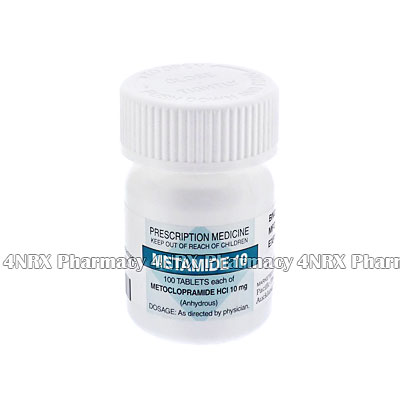 |
Home  Heart Heart  Metamide (Metoclopramide HCL) Metamide (Metoclopramide HCL) |
|
|||||||||
|
Metamide (Metoclopramide HCL)
What is Metamide (Metoclopramide HCL) used for? Metamide (Metoclopramide Hydrochloride) is used as a short term treatment for persistent heartburn. This medication helps to decrease damage to the esophagus caused by stomach acid. It may also be used to treat slow gastric emptying (known as gastroparesis) in diabetic patients. By helping to increase the speed at which the stomach empties into the intestines, it can prevent vomiting and heartburn. How should I use Metamide (Metoclopramide HCL)? Metamide (Metoclopramide Hydrochloride) tablets are normally taken 30 minutes before meals, and at bedtime. Patients should consult their physician before taking this medication in order to determine the correct dosage required, as the exact dosage may vary depending on the patient's medical condition. This drug is normally only taken for 4 to 12 weeks consecutively, as using it for longer than 3 months may cause a condition known as tardive dyskinesia. What are the side effects of Metamide (Metoclopramide HCL)? Side effects which have been reported by patients taking Metamide (Metoclopramide Hydrochloride) include headaches, tiredness, vertigo and insomnia. Although rare, there are also some other more serious side effects associated with this drug. Consult your physician immediately if you notice any of the following:
Please Note Strictly follow all instructions provided to you by your physician or pharmacist while using Metamide (Metoclopramide Hydrochloride). Optimum and safe dosage can differ based on the patient and the condition being treated. As this medication may be unsafe for certain patients, it is essential you always inform your physician if you are pregnant or breastfeeding, as well as if you have any allergies, other illnesses, or ongoing health conditions, especially blood problems, liver disease or kidney disease, and if you are taking any other form of medication, supplements, or herbal products. Immediately seek emergency medical care if you have an allergic or hypersensitive reaction. Common signs of a reaction include hives, swelling, skin rashes, chest pains, as well as trouble breathing or swallow. 
|
|||||||||||||||||